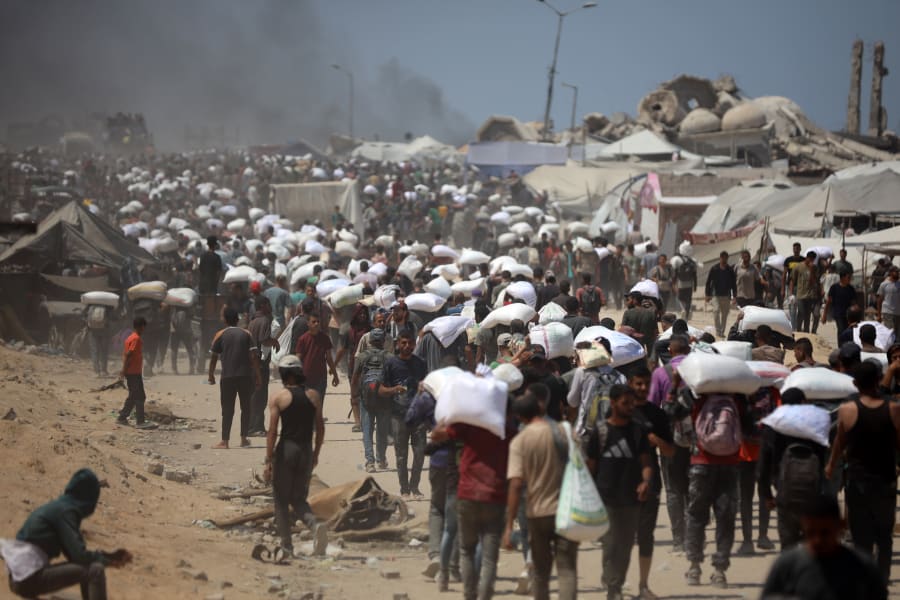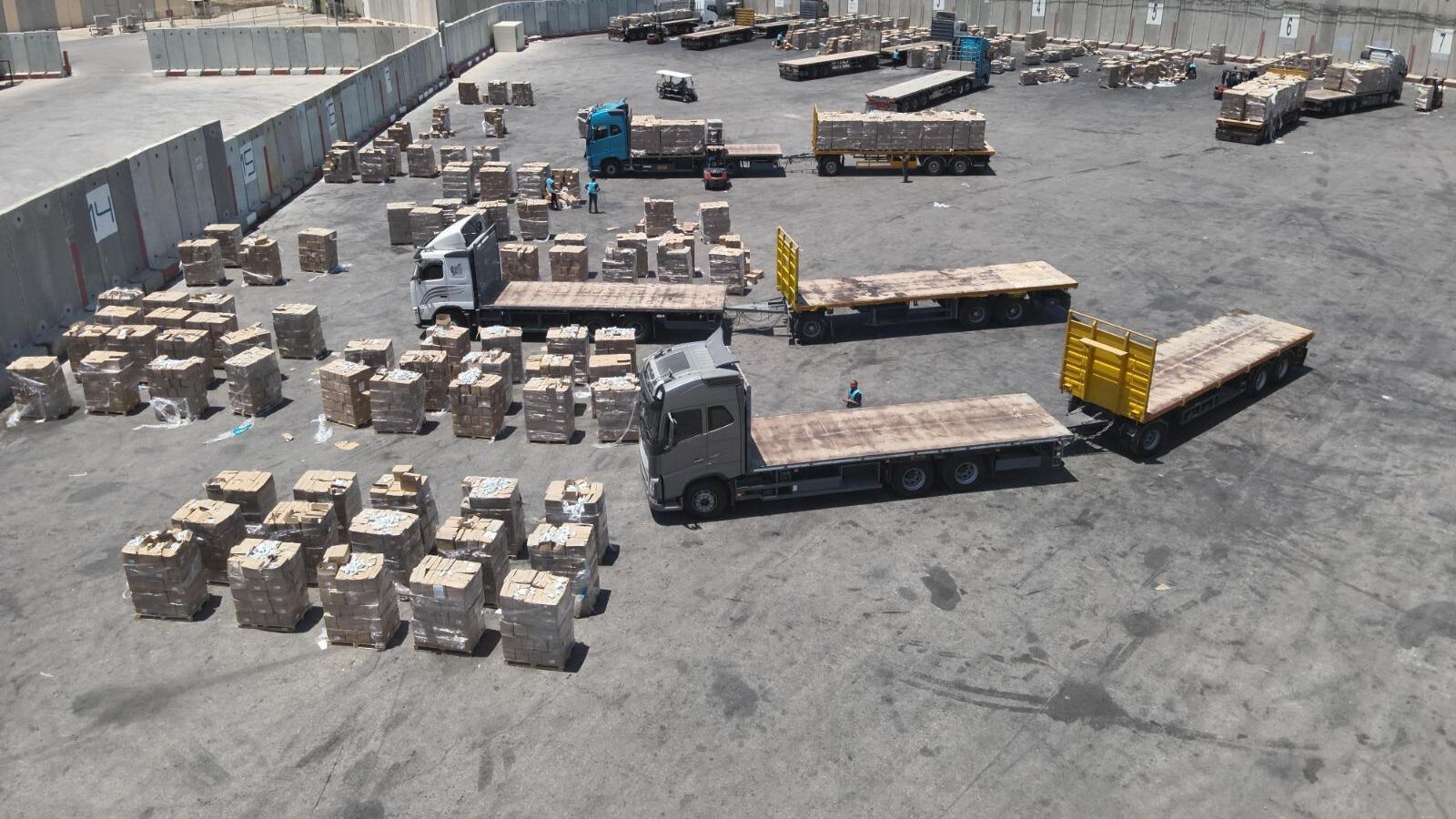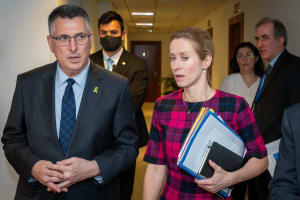PM Netanyahu: New Gaza aid policy shows there are 'no more excuses,' Hamas will be eliminated
Aid policy shift aims to alleviate external pressure, restore military freedom of action

Amid a torrent of international criticism over the humanitarian situation in Gaza, Israel instituted a sudden and radical shift in its aid policy on Sunday.
Prime Minister Netanyahu defended his decision during comments made on a visit to the Ramon Air Force Base in the Negev Desert on Sunday.
“We will eliminate Hamas,” he reiterated. “In order to complete this goal, and also the release of our hostages, we are making progress in fighting and negotiating.
“In any path we choose, we will have to continue to allow the entry of minimal humanitarian supplies. We have done this until now,” Netanyahu said.
Hinting at his possible main reason for the move, the prime minister then attacked the United Nations: “It says we are not allowing humanitarian supplies to enter. It is allowed. There are secured convoys. There have been all along, but today it is official. There will be no more excuses. We will continue to fight, we will continue to act until we achieve all of our war goals – until complete victory.”
A message to the world about the humanitarian situation in Gaza: pic.twitter.com/2OU4nbV7nI
— Israel Defense Forces (@IDF) July 27, 2025
The decision to boost aid efforts at the expense of the IDF’s fighting effort was aimed at easing pressure from the U.S. and to avoid imminent European penalties, according to Israeli reports.
Energy Minister Eli Cohen told Kan News that Israel’s move followed meetings by the Foreign Ministry “with their counterparts in Europe, and in order to prevent European sanctions on Israel, it was decided to advance these steps.”
Last Tuesday, the EU chief diplomat Kaja Kallas had warned, “All options remain on the table if Israel doesn’t deliver on its pledges,” and said that the “killing of civilians seeking aid in Gaza is indefensible.”
Cohen, who served as foreign minister until last year, explained that “Hamas wants to reach a situation where there will be decisions made against the State of Israel on the international stage, to reach a goal that the war will end and it will continue to exist.”
However, Israel “did not fall into this trap,” according to Cohen.

Speaking to Israel Hayom, sources close to Netanyahu emphasized that it wasn’t external pressure per se, but the desire to preserve the IDF’s freedom of action that led to the shift.
This included growing pressure from U.S. President Donald Trump, Israeli officials told the outlet.
A source also told the newspaper that the accusations against Israel claiming a 'starvation campaign' are "harming our image globally, including in America. We cannot allow starvation in Gaza because operationally, we would be unable to continue fighting. That has always been the guiding principle. We haven't retreated from it. We still have surprises in store for Hamas, and we must preserve our operational freedom.”
Another official explained that Israel intends to demonstrate that it is not responsible for the difficult situation in the enclave.
“When the IDF creates humanitarian corridors, it removes the UN's excuses for failing to deliver aid we had already approved,” he said.
“There's a real humanitarian need, alongside perceptual and diplomatic considerations, but Israel has not compromised any of its core principles in the war,” the official stressed.
An Israeli Cabinet minister told the newspaper that Israel should have acted sooner to avoid being caught in the last day’s torrent of severe criticism.
“We should never have reached this point. We should have acted earlier to avoid the negative optics internationally.”
However, several Cabinet members, most notably National Security Minister Itamar Ben Gvir, criticized the Israeli move.
According to Channel 12 News, Ben Gvir renewed his offer to fellow right-wing firebrand and Finance Minister, Bezalel Smotrich, to create a unified bloc and threaten to leave the coalition – potentially collapsing the government – if the decision was not reversed.
Sources close to Smotrich said the minister was fuming over the decision, which reportedly was made during the Sabbath and without consulting him, and is now considering his options, including leaving the coalition.

The All Israel News Staff is a team of journalists in Israel.
You might also like to read this:
















